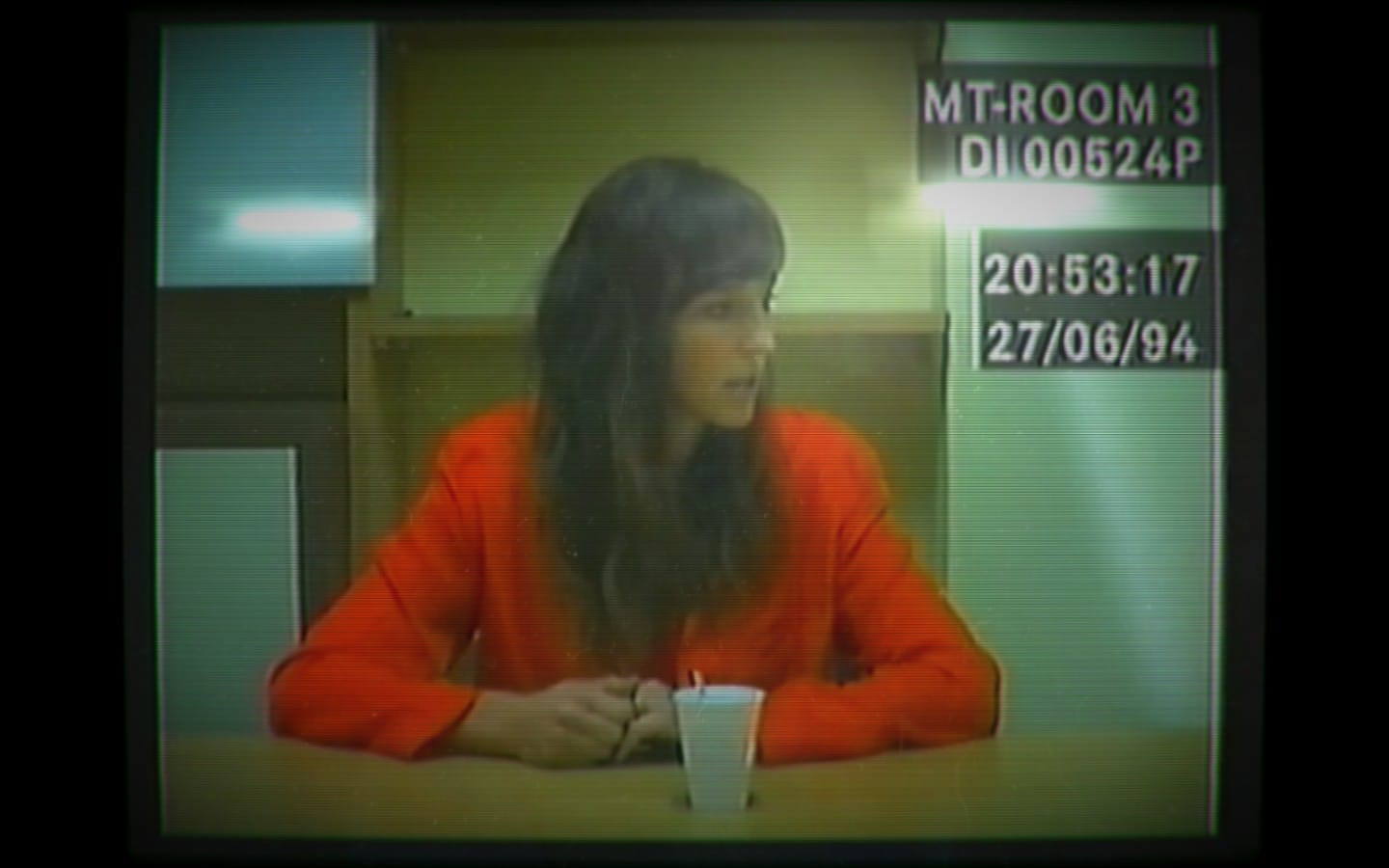Shut up, Her Story

This article was written by Ed Smith and originally published on Shut Up Videogames. You can find more of his writing at Edge, Vice, and Words That Wont Sell.
It was brought to us by our friends at Critical Distance, who find the best in critical writing about games each week. You can see more at their site, and support them on Patreon.
///
Note that this article contains plot details for the game. If you haven’t played it yet, read at your own risk.
“God is a first rate novelist and to be there when He’s strutting his stuff is not only legitimate but honorable, part and parcel of fighting the good fight.” Richard Price wrote that, in his foreword to David Simon’s Homicide: A Year on the Killing Streets, the greatest work of crime non-fiction you’re ever likely to read. I can’t put myself up there with Price, and certainly not with Simon, but as a reporter and a critic, I’ll die with the belief that fact is always greater than fiction, that truth, no matter how mundane, is fascinating above even the best spun lie.
There are eight million stories in the naked city and Sam Barlow, developer of Her Story, makes it at least seem like he’s bringing us one of them. Live-action cutscenes, a Windows ’95 desktop, the unheard of (at least worldwide) city of Portsmouth, England — Her Story has pretensions of reality. Its actual videos of an actual woman imply verisimilitude above artificial rendering. Its aged technology, prosaic location, entail a disinclination towards fantasy, and an appetite for the everyday. It’s a game which involves trawling evidence and deciding, in kind, upon your own version of events. But beneath that journalistic veneer, Her Story is the worst kind of crime fiction bushwa.

This is a murder story, detailing an unhinged young woman called Hannah Smith who kills her husband then uses for an alibi her twin sister, Eve. And although game reviewers, starved as they are for quality writing, argue Her Story represents the cutting edge of gaming narrative, it isn’t above even the crummiest ITV drama. Wire In The Blood, A Touch of Frost, Trial and Retribution — these are Her Story’s literary stablemates. When the game tries through aesthetics to appear grounded — to make you feel that Hannah’s interrogation film is like something you could plausibly find on a real police computer — it represents an ugly hysteria that pervades crime fiction.
Reality is implied by crime dramas (the very title of CSI references meticulous collection of evidence — Luther’s drab visual palette flouts typical Hollywood sunshine) but narratively they tend always towards hyperbole, and the most terrifying crime scenario imaginable. Murderers are always masterminds, drug dealers are always kingpins. And so the message of these cop shows becomes thus: criminals not only exist in the real world, but exist extremely. It’s unsafe to go outside, and crime should be policed using only the hardline method. If Richard Price and David Simon have one achievement between them it’s giving to audiences, even those for fiction, a disciplined perspective on criminals and crime — it’s never succumbing to embellishment, and in doing so helping propagate simplistic attitudes towards policing.
represents an ugly hysteria that pervades crime fiction
Her Story on the other hand, despite its workaday interface, is anything but measured. As Jed Pressgrove wrote in his review for Slant, the game’s “improbable, laughable case of jealousy plays off the overused ‘crazy bitch’ trope… it’s as desperate as any pop video game to resemble a cheap movie or television show.” There is a crime being committed in Her Story, but it isn’t Hannah’s. It’s that of yet another crime fiction writer, conflating melodrama with found-footage, documentary, or any otherwise “real” aesthetic, and in doing so helping affirm the idea that society should lock up its criminals and throw away the key. Her Story is open-ended and in the journalistic tradition you are left ultimately to make your own mind up about Hannah and Eve. By that measure, you could say it has a more nuanced perspective; it has sympathy for its two criminals, and invites you to empathise with them, despite their crime. But aside from gleaning the raw facts of the murder, mostly through clumsily placed visual nuggets, you don’t journey with Hannah or Eve. When you start the game they both seem suspicious and guilty. When you end the game, they both seem suspicious and guilty. Perhaps it’s Barlow’s dialogue. Perhaps it’s Viva Seifert’s performance. But you don’t go anywhere with these characters. And the noble intent of Her Story’s structure, to provoke us into feeling for these on-screen criminals, rather than reacting to them with jerked knees, is lost amidst badly written and poorly performed melodrama. What remains is an empty crime story, abasing further the idea that reality should bleed into fiction.
///
This article was written by Ed Smith and originally published on Shut Up Videogames. You can find more of his writing at Edge, Vice, and Words That Wont Sell.
It was brought to us by our friends at Critical Distance, who find the best in critical writing about games each week. You can see more at their site, and support them on Patreon.



